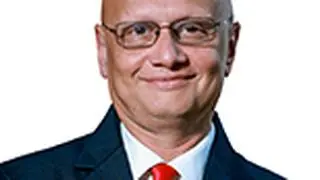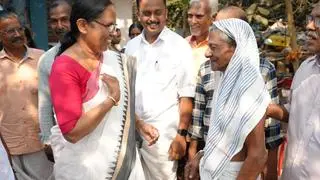After Rajasthan and Uttar Pradesh, it Maharashtra now seems to be working out a relief mechanism under the Goods and Services Tax (GST) regime in lieu of entertainment tax waiver.
Recently, the Bombay High Court in the matter between Adlabs Entertainment and the Government, asked the State to constitute a high-level committee to examine the issue and recommend what needs to be done in this regard. The committee will comprise the Principal Secretary of Finance, and the Secretary to the Tourism Department, among others.
An authorised representative of the petitioner may also be given a representation and if needed, be given personal hearing by such committee. “The conclusions of the Committee in the form of recommendations may be placed before the government. The same may also be placed before the court on the next date of hearing,” the court said in its order.
The next date for hearing is February 21, 2019.
Tourism policy
The petitioner set up a theme/water park at Khalapur in the State. As part of the tourism policy of the State government, the petitioner was offered certain incentives in the nature of entertainment tax waiver. At that time, the rate of the tax was 15 per cent. This gave a competitive advantage to the petitioner.
However, the problem started with the introduction of GST, as entertainment tax got as subsumed in the new indirect tax regime. Now not only was the waiver gone, but the company was also to deposit tax at the rate of 18 per cent. The basic principle of the GST does not promote exemption, but prescribes for deposit of taxes due. Both the Centre and States can prescribe a refund mechanism in lieu of exemption to continue promoting industrial activities in their respective region. Accordingly, beneficiaries will have to deposit the tax and then they will be given a refund. Based on this principle, the Rajasthan government has already issued a guideline, while UP is formalising the process after decision by the State government’s Cabinet.
The court noted the submission made by the petitioner’s counsel, who said that the petitioner was unable to recover even its capital investment because the entire tax structure had changed with the advent of GST. It was also submitted that Rajasthan has issued a notification granting partial relief to similar industries while Uttar Pradesh is in the process of issuing a similar notification.
The counsel for the petitioner submitted that if the industry goes sick, besides the capital investment going to waste, it will also render a larger number of people directly or indirectly employed in the industry jobless. The court was informed that the Maharashtra Tourism Development Corporation has also written to the government taking up the cause of the petitioner.
“Formation of a high-level committee to fix the problem is a pragmatic way to deal with the situation when the petitioner has legitimate expectancy from the State promise. There is a possibility that the other High Courts also follow this approach for the pending petitions,” said Abhishek A Rastogi, partner at Khaitan & Co, the arguing counsel for this petition in Bombay High Court.







Comments
Comments have to be in English, and in full sentences. They cannot be abusive or personal. Please abide by our community guidelines for posting your comments.
We have migrated to a new commenting platform. If you are already a registered user of TheHindu Businessline and logged in, you may continue to engage with our articles. If you do not have an account please register and login to post comments. Users can access their older comments by logging into their accounts on Vuukle.